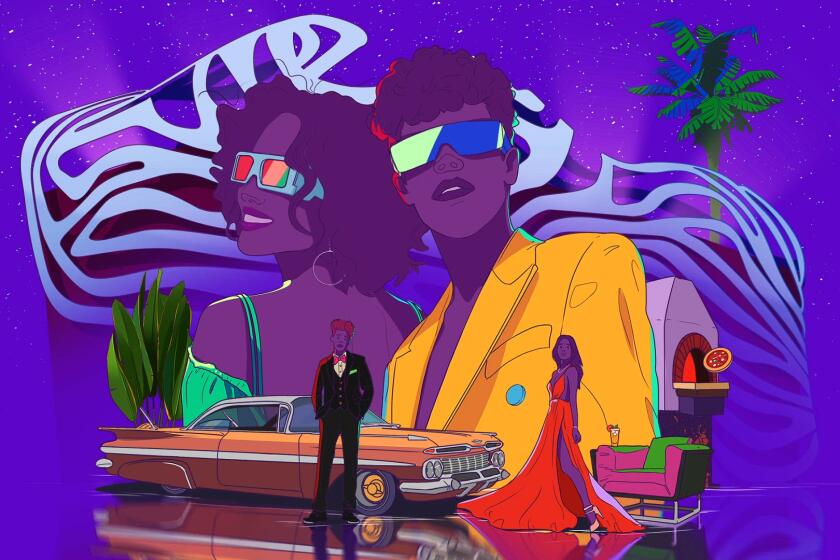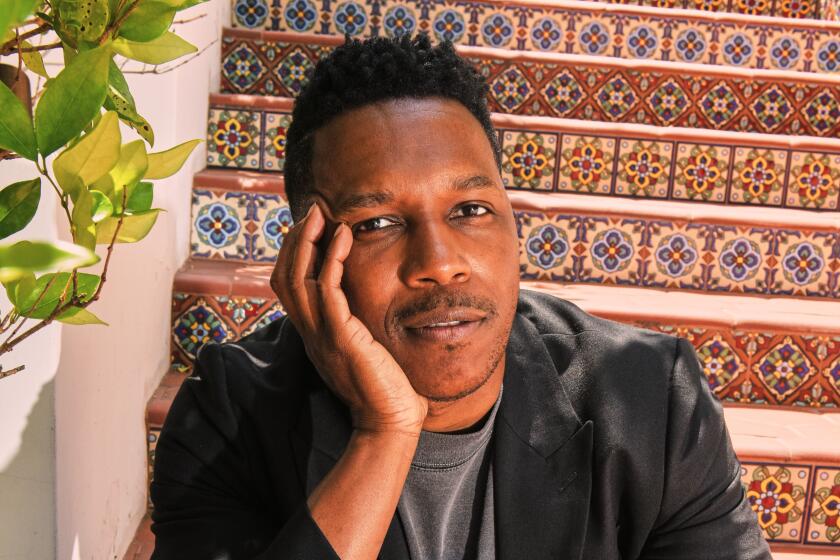One More Saint Goes Marching In, but the Legacy Lives On : Music: As long as there’s jazz, Dizzy Gillespie will be celebrated, not mourned.
As I write this, Dizzy Gillespie has been dead a few hours and KLON-FM is playing his recordings one after another. I’m sipping a red wine as close as I could find to the one he and I drank a lot of on a fall afternoon of listening and laughter in 1962 in his hotel room in Cleveland. I’m trying to summon the feelings of desolation and loss requisite when a friend and idol dies. But there’s so much joy in his music on the radio, so much of his irrepressible spirit, so much of his foxy wisdom and humor that John Birks Gillespie won’t allow me to sustain grief for more than a few seconds.
I stare out into the rain, thinking about the next to last time I saw Diz in Los Angeles, backstage at the Universal Amphitheater following a middling concert by his quintet. He was standing against a wall, relaxed, leaning on a broomstick covered with bottle caps, his famous “rhythmstick.” He shrugged and grinned. The shrug and the grin said, “What the hell, you can’t win ‘em all.”
I think about the day I was walking down Broadway in New York and heard his unmistakable voice from the midst of the traffic’s roar. A car pulled up to the curb, Dizzy got out, bowed low and said, “You’re coming with us.” And we spent a crazy hour touring midtown Manhattan while he entertained everyone within hearing distance with a running commentary on people, buildings, city life.
Over the years, I had at least a dozen such experiences with Dizzy, and each of them had the warmth, spontaneity and unpredictability of his music. Multiply that by the thousands, of people he treated with the same generosity and affection, and you begin to comprehend the dimensions of love and pleasure he created not only with his music but his being.
The last time I saw him in L.A., at the Greek Theater, he had just led his big band through two hours of perfection. There were moments that night when his trumpet had the glory, the impossible virtuosity, of the strongest performances of his youth. This time backstage there was a bear hug and a little dance, and he said, “Rams, you dog, if I’d known you were out there, I’d have tried to play something.”
“It’s all in Arbans,” the trumpet exercise bible, he used to say when he was asked about his technique. Right. And everything Faulkner needed was in Webster’s.
Driving home through the storm tonight, I listened to a new compact disc. As the young trumpeter Tom Williams played phrases that Clifford Brown developed after hearing Fats Navarro, who learned from Dizzy, who studied Roy Eldridge, Louis Armstrong’s great successor, I reflected on the “end of an era” cliches we hear when a great person dies. The end of an era, possibly. But not the end of a tradition. Thanks, Birks. See you in the land of Oobladee.
More to Read
The biggest entertainment stories
Get our big stories about Hollywood, film, television, music, arts, culture and more right in your inbox as soon as they publish.
You may occasionally receive promotional content from the Los Angeles Times.






